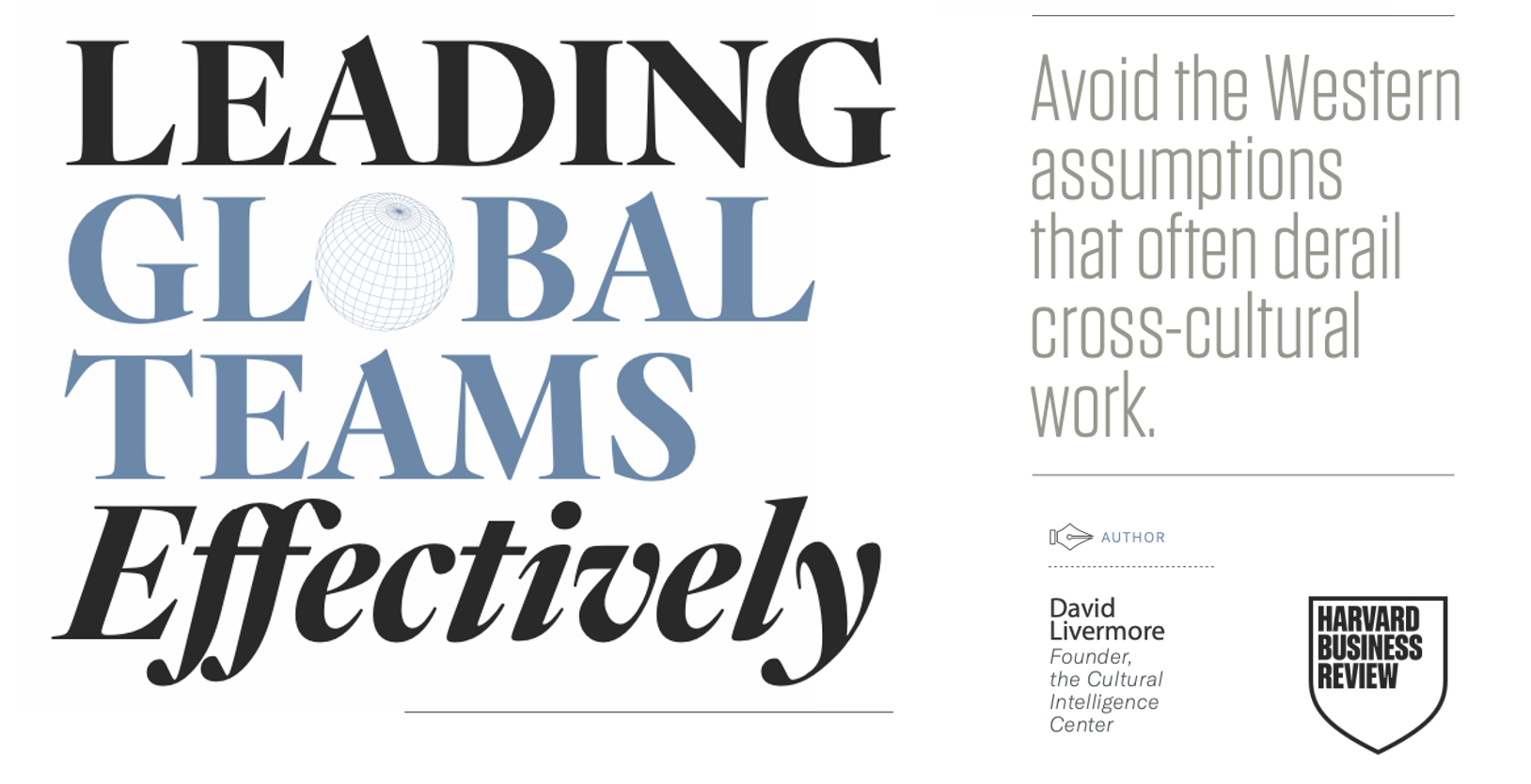
Why Great Leaders Don’t Rely on One Leadership Style
Discover how you lead, then learn how to expand your range. Scroll through LinkedIn or listen to many leadership podcasts and you hear the same

Discover how you lead, then learn how to expand your range. Scroll through LinkedIn or listen to many leadership podcasts and you hear the same

There’s a running joke in our family about the number of countries where I’ve gotten a speeding ticket. The most embarrassing was getting pulled over

I was recently speaking with a Singapore-based executive whose team spans six nationalities and four generations. “The complexity of leading global teams is getting harder,”

Guest post by CQ Fellow Trisha Carter Recently, I’ve found myself reflecting on a paradox that lies at the heart of cultural intelligence: Cultural intelligence

The majority of leadership advice tells leaders to prioritize autonomy, transparency, and “speaking up.” But these same practices can backfire on global teams shaped by

I recently took a week-long break from the news. I had to. I was mentally exhausted. It’s ironic given that I recently wrote, “You can’t

You may have very high CQ, but the organization where you lead significantly determines whether your cultural intelligence makes much difference. Imagine assuring a European

The world is run by teams. Teams build our houses and produce our food. They perform surgeries, teach kids, and run governments, schools, and companies.

Cultural intelligence, or CQ, is the new currency of leadership. It’s a stronger predicter of leadership success in diverse, complex environments than IQ, EQ or

Cultural intelligence, or CQ, is a stronger predicter of leadership success in diverse, complex environments than IQ, EQ or lived experience. But where should leaders
David Livermore, PhD (Michigan State University) is a social scientist devoted to the topics of cultural intelligence (CQ®) and global leadership and the author of several award-winning books.